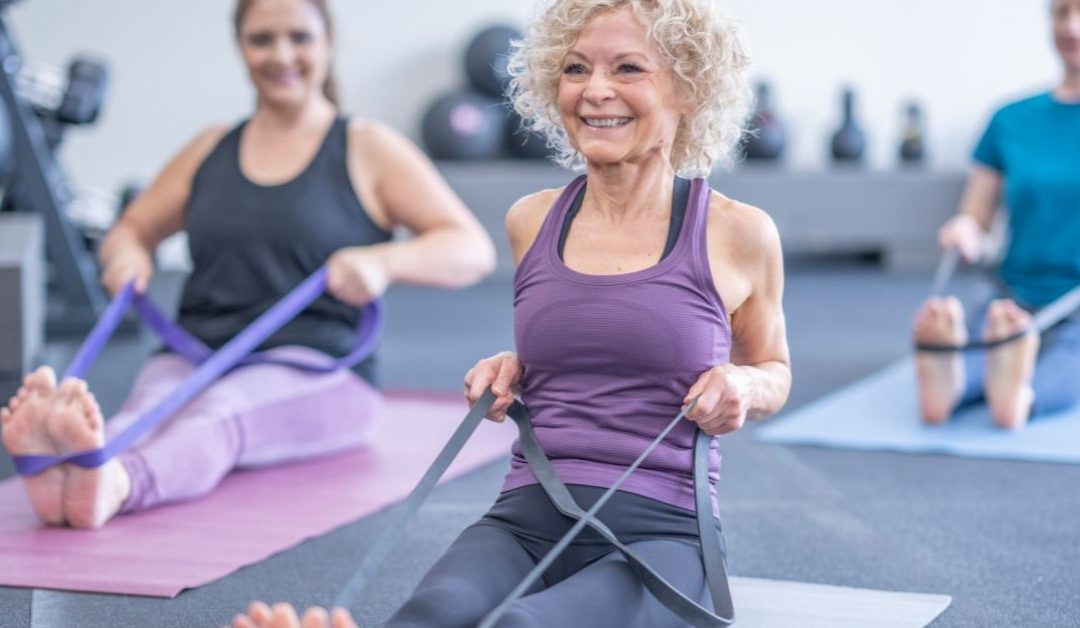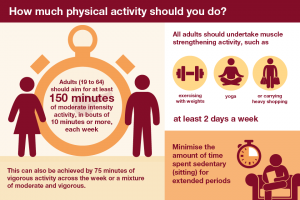Have you heard about the benefits of weightlifting?
I often get enquiries from women, especially women who are around about the menopause years, who want to start lifting heavy things.
Yay! There are so many benefits to lifting weights, or other forms of resistance training (like bodyweight exercise, resistance machines or resistance bands), especially in midlife. It’s great that the message is getting to the women who need it.
But – if you’ve spent the last thirty years being sedentary, I will not lie to you – lifting heavy things is hard.
In the interests of full disclosure, here are the hard things about strength training:
- Generally, it happens in a gym, which isn’t always an easy place to get to, or to be.
- Lifting weights well is a skill. There can be a fair bit to learn – not only about the movements but also about how to measure intensity in your body (how hard it is). Learning new skills is great for your brain health, but it takes a bit of time and commitment.
- Figuring out how you can build consistency in a brand-new habit.
It’s a good job you can do hard things (I don’t doubt you!)
Is hiring a personal trainer or joining a gym the best place to begin?
No, it is not.
First of all:
Do you get your 150 minutes of movement per week? This is what the NHS recommends.
Government illustration:
Don’t be sceptical about the benefits of the 150 minutes.
You might have heard that another common recommendation, 10 000 steps a day, has no evidence to support it: but the evidence for 150 minutes comes from long term studies. That’s the kind of research that follows a big group of people over a very long time, like the Women’s Health Study or the Nurses Health Study.
These studies have shown that people who participate in a certain amount of activity are at lower risk of chronic health conditions.
For health benefits, you need two and a half hours a week of moderate intensity exercise – like a brisk walk, a swim, cycling, dancing – where your breathing is elevated and your body temperature rises.
It’s not complicated, but it only works if you do it.
Make this a habit:
Get at least 20 minutes of breath-elevating, temperature-increasing movement every single day.
A habit means that it becomes easier to do it than it would be to not do it. When you don’t do it, you feel like you’re missing something.
This must be your health priority, over any other prescriptions like weightlifting!
NEXT:
When you’ve got that in the bag and not before, you can:
Add two days a week where you do some muscle strengthening activity, like resistance training (that can be bodyweight or resistance bands or weights or machines) or yoga or heavier garden work.
It doesn’t have to be complicated – but you need to do it!
FINALLY:
When that’s under your belt, reduce the length of time you spend sitting still. Get up and move frequently – sitting still for extended periods does not promote good health.
If you can get these three things sorted you will have reduced your risk getting:
- Dementia by 30%
- cardiovascular disease by 35%
- type 2 diabetes (40%)
- colon cancer (30%)
- depression (30%)
- hip fractures (68%)
- all-cause mortality (30%)
Implementing these three things will do more for your health than anything else.
Once they’re sorted, you can start flashing the cash, committing to the gym, buying the gym clothes. Even if you’re seeing a personal trainer or taking part in gym sessions, you still need to meet all three of these goals.
Get your foundations in place and the rest will be a lot easier.



